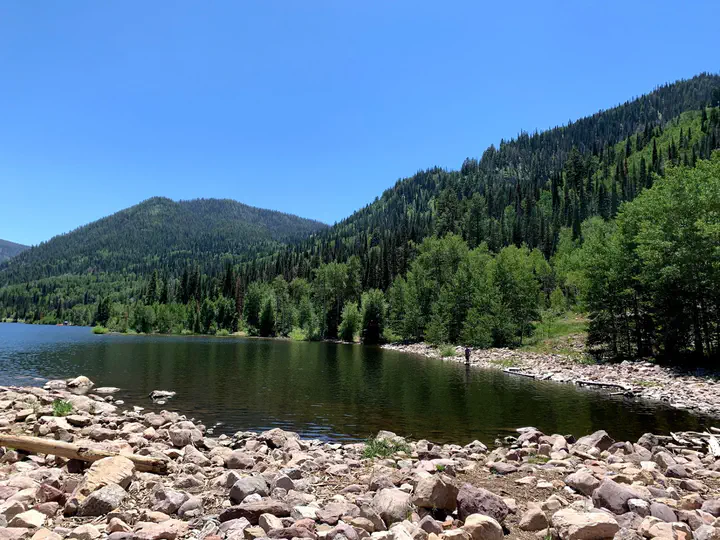Modeling fuel treatment effectiveness for reducing the risk of watershed degradation
 Photo by Larissa Yocom
Photo by Larissa YocomFire can affect aquatic resources as well as terrestrial landscapes. Colleagues in the Watershed Sciences department and I published a paper documenting the risk that reservoirs are under due to fire risk, given a century of fire exclusion and a historical misunderstanding of fire’s role and prevalence on western landscapes. We are now working on a project focused on how to place fuel treatments in order to reduce high-severity fire and subsequent negative impacts on downstream reservoir storage and fish habitat through sedimentation and debris flows. Graduate student Kipling Klimas is leading this project.